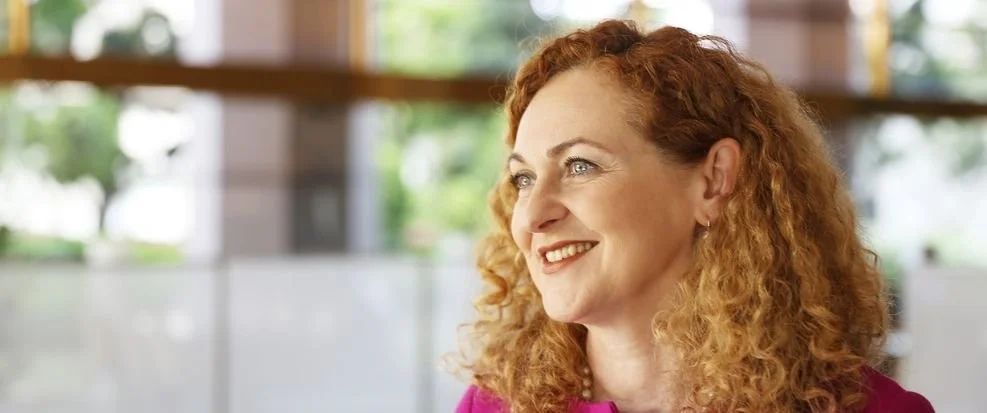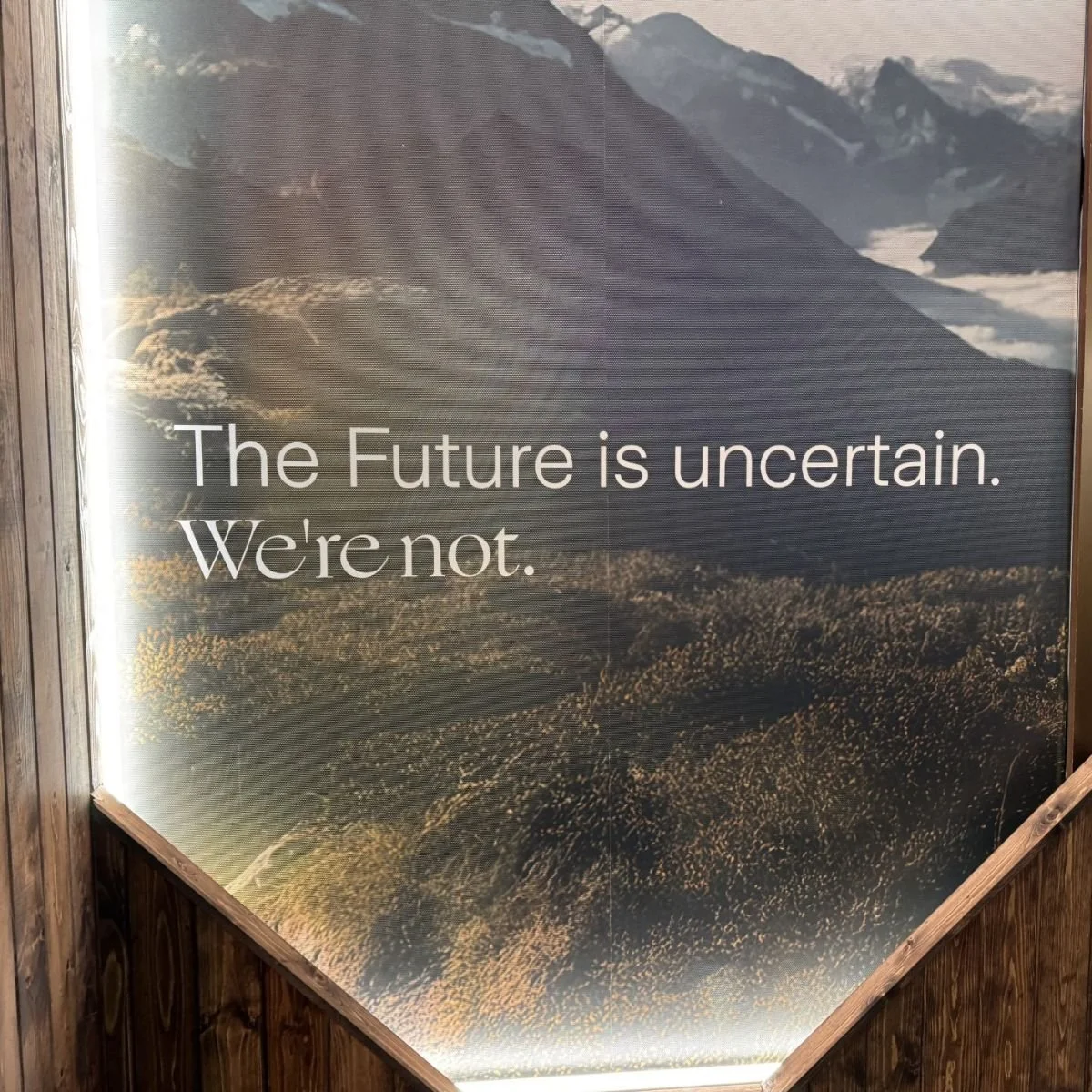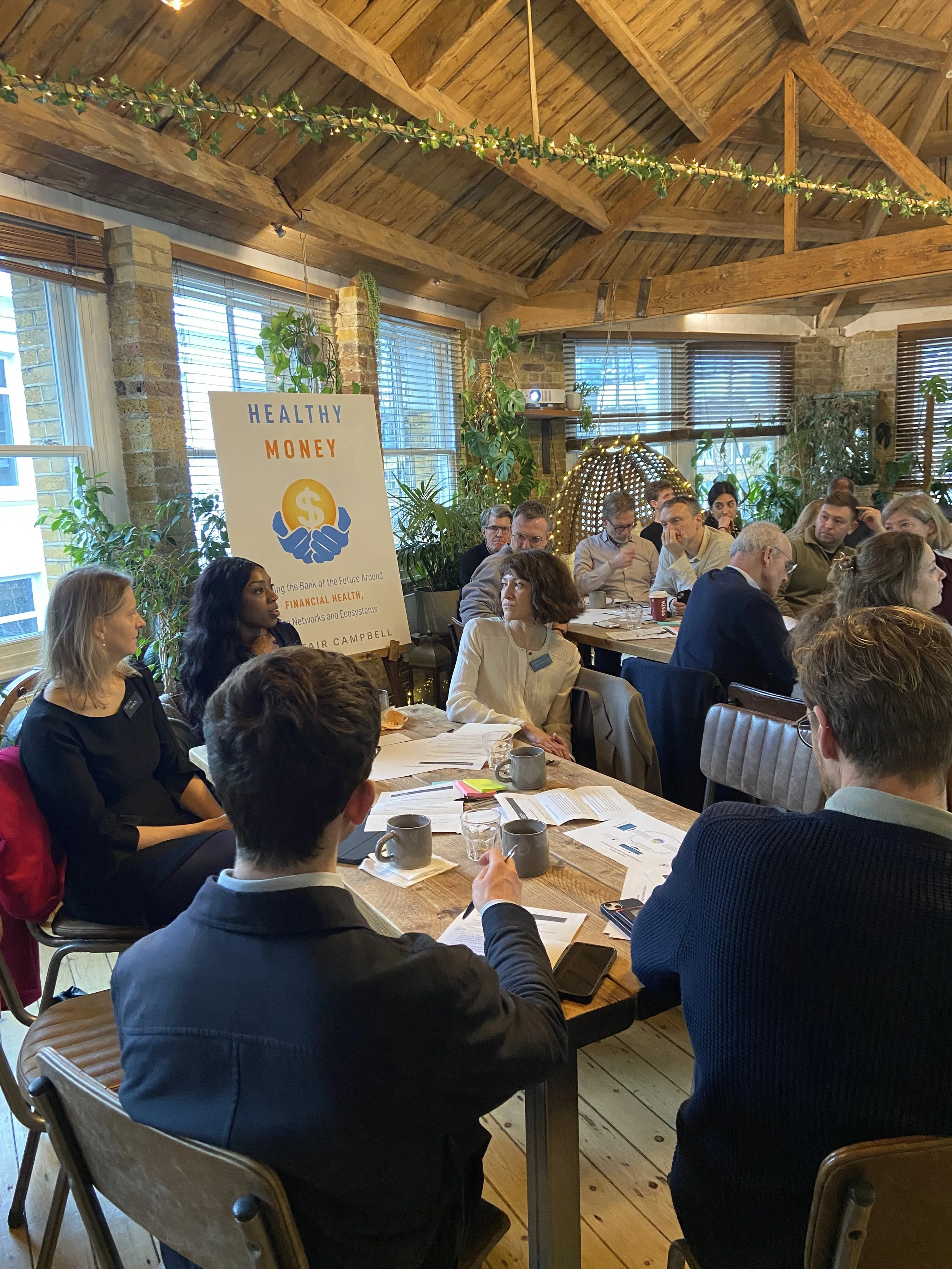Purposeful Action is the Antidote to Turbulence
August 2025 | Economics of Mutuality Leaders Stories
A Conversation With Drahomira Mandikova
As Group Chief Sustainability Officer at Asahi Group Holdings, Drahomira Mandikova is leading the company’s global push toward a more sustainable and socially impactful business model. Based in Japan and part of the global leadership team, her focus is on driving the growth of the business through a sustainable approach, including ambitious targets like net zero emissions across scopes 1, 2, and 3 by 2040.
We recently caught up with Drahomira to unpack what it means to lead through disruption and finding purpose in uncertainty.
Introducing a New Mindset
Drahomira’s journey with the Economics of Mutuality began during her time in Asahi’s European headquarters, where she was responsible for embedding purpose into the company’s strategy.
“We were working on how to become a purpose-driven business. That’s how I started to be in touch with the Economics of Mutuality and their Executive Education program, Leading With Purpose.”
After completing the program, Drahomira’s knew the Economics of Mutuality offered a transformative way of seeing and doing business. It helped her recognize that sustainable, purpose-led business isn’t just idealistic, it’s a viable strategy.
She recalls a powerful exercise from the course where leaders mapped stakeholders around a societal pain point rather than around the company itself. This small shift unlocked entirely new ways of seeing value creation.
“You move the company out of the center. You become part of the solution.”
The program also helped catalyze a shift in how Drahomira and her colleagues lead. She introduced a “sustainable EBITDA (Earnings Before Interest, Taxes, Depreciation, and Amortization)” concept at Asahi, which recalculates profitability by accounting for carbon and other environmental costs, an approach directly inspired by Economics of Mutuality principles.
Addressing Loneliness
One of the most recent and tangible examples of the Economics of Mutuality at work is Asahi’s response to loneliness in small communities. Rooted in their brand Kozel, a Czech beer with a long-standing tradition and deep community ties, Drahomira and her team identified loneliness as a pressing societal issue where the brand could make a meaningful impact.
“We realized that loneliness is the real issue… Pubs are closing, local shops are disappearing, and the sense of belonging is fading.”
Rather than treat this as a surface-level marketing opportunity, Asahi sought to authentically align brand purpose with community needs so it “really fit the DNA of the brand.”
This work on loneliness resulted in a trailblazing report on the topic, which is the centrepiece of a cross-sector initiative, “Business vs. Loneliness”, led by the team at the Economics of Mutuality Alliance. One example given in the report is how Asahi Europe & International used hospitality spaces and an online platform to help young adults in Europe overcome loneliness through meaningful social connections.
This is part of a broader effort to embed purpose across business units—from brand and commerce to sustainability and leadership—something Drahomira acknowledges is “not easy,” but necessary.
Shaken Into Action
While the challenges ahead are real, Drahomira is hopeful. She believes that the turbulence of recent years is waking leaders up to their responsibilities and opportunities.
“We only act when we are shaken. But I see more and more leaders trying to bring this purpose-driven approach to life.”
For her, the future of business depends on how companies adapt, measure success, and listen—not just to shareholders, but to society.
“We can’t make decisions today based on how we made them in the past. We need to make decisions based on how we will do it in the future.”
Her call to action is simple but urgent: pause, reflect, and act with mutuality in mind.
Are you a leader with a deep conviction that business should be a force for good? Our Leading With Purpose executive education program could for you.
Delivered online over 9-weeks, the course is grounded in the practical Economics of Mutuality operating model, which has been developed with leading companies and universities including Mars and Oxford University’s Saïd Business School.
Since its inception, it has helped over 500 senior business leaders and investors integrate social and environmental impact into their core business strategy.
Program dates: October 1 – December 3
Application deadline: August 27




